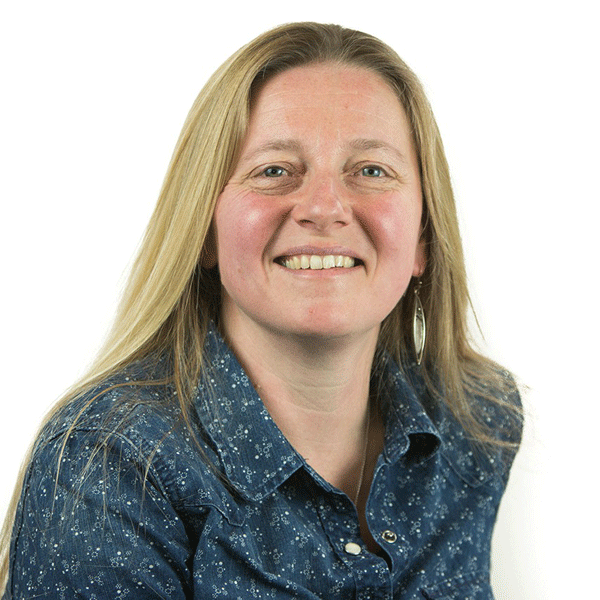Do you want to take your crime writing to new and exciting levels?
Join expert tutor Nicola Upson for an 18-week in-depth online creative writing course. This intermediate course builds on the expertise acquired at an introductory level and will lead you through the elements of writing a crime fiction novel. By the end of the course, you will have up to 9,500 words of a crime fiction novel.
This course is ideal for people who have already started their crime writing journey. You will be someone who writes regularly, and you’ll likely be working on a longer project. You might have completed a long-form course more recently, or you might be returning to writing after a period of absence and be looking for renewed structure and support.
Start date
Monday 20 May 2024
Location
Online
Length
18 weeks (please see course schedule below)
Price
£995
By the end of this course you will have…
- Built on the foundations of structure, setting, character development and plot
- Explored the use of tension and pace
- Tackled the difficult elements of the genre: murder, violence, and gore
- Thought about how to bring your story to a close
- Heard from a literary agent
- Written almost 10,000 words of a crime novel.

How to apply
Apply this course today — places are on a first come first served basis and limited to a maximum of 15 students to ensure a tailored experience. To apply, we ask that you submit:
1. A 500-word sample of your work
2. A one-paragraph introduction to yourself.
Email [email protected] to apply. Please format your email’s subject line: ‘[your name] application for Crime Fiction’. Applications are assessed and places are allocated on a first-come-first-served basis. Application deadline is 5pm BST on Monday 13 May.
You can pay for the full course upfront today, or by instalments. For details of our instalment plan, please email [email protected].
I felt very supported throughout the course and recognise that I have developed my writing skills.
Course programme
Module one – Firm Foundations
This module will give you the foundations you’ll need for the rest of the course. You’ll look at your favourite crime novel with analytical eyes, you’ll explore where ideas come from, and you’ll have a go at writing a few different story openings in contrasting styles. For your assignment, you’re asked to submit up to 1,000 words of the opening of a crime story – either your current work in progress or inspired by one of the exercises.
Module two – A Sense Of Place
In this module, you will explore the importance of place and the role of setting in crime fiction. You’ll look at iconic crime fiction locations and the way they impacted on the story, you’ll discover the functionality of setting as a writer, and you’ll create a sensory description of setting. For your assignment, you’ll bring all of this together in a 1,500-word crime scene.
Module three – Who Do You Think They Are?
This module focuses on writing character. You’ll go out and observe people in the real world, you’ll examine the delicate line between heroes and villains, and explore motive and credibility in crime fiction. Your assignment this week will be to introduce your main character to your reader, bringing together everything you’ve learned from this module.
Module four – Finding Your Way
In this module, you’ll look at some of the key techniques of all fiction: plot, point of view, and conflict. You’ll also look at techniques specific to crime fiction, including tension and pace, menace and suspense, and the way you manage time. For your assignment, you’ll pull all these together to write an engaging section of narrative.
Module five – How Far Will You Go?
This module tackles the difficult elements of crime fiction: murder, violence, and gore. You will find your comfort zone and explore why you read and write things you might find difficult. You’ll look at different perspectives, you’ll find the body in your narrative and you’ll also look at different types of crime fiction that aren’t centred around death. Rather than an assignment, you’ll submit a piece of work you’ve been struggling with or want feedback on and have a 1-1 tutorial with your tutor.
Module six – The Sense of an Ending
This module will be split between the creative aspects of bringing your story to a close, and some practical aspects of making your work as good as it can be and taking the first steps towards publication. You’ll discuss the perfect final chapter, you’ll tie up loose ends, and you’ll read your work aloud as an editing tool. You’ll also submit questions to an agent to find out about the next stage if you’re looking to publish your writing. Your final assignment will be the first draft of an ending of your work.
Live sessions
There will be two live sessions for this course, which will take place over Zoom.
Zoom one: Saturday 25 May, 11am-12pm BST
Zoom two: Bookable one-to-ones in module six
Meet the tutor
Nicola Upson is the author of four previous Josephine Tey mysteries, including An Expert in Murder, and two works of nonfiction. She has worked in theater and as a freelance journalist. NCW first worked with Nicola when she was awarded a mentorship on the Escalator Talent Development Scheme.

Why study with National Centre for Writing?
National Centre for Writing has been supporting writers to develop their craft for over 25 years. Our online tutored courses are developed in partnership with University of East Anglia, home to the prestigious School of Literature, Drama and Creative Writing, which boasts award-winning alumni including Kazuo Ishiguro, Ian McEwan and Anne Enright. Our course tutors are all published writers, many of whom have studied or taught at UEA themselves.
![]()
While there are many online courses available to you across the world, ours are unique in offering:
- One-to-one feedback on up to six assignments, directly from your course tutor
- A tailored learning experience with 15 students maximum
- Flexibility to progress through the course anywhere, any time
- Support and structure to develop a writing routine
- Skills and knowledge to improve the craft of writing
- Confidence in your ability as a writer
- Opportunity to join our NCW Alumni, an international network of like-minded writers and translators.
How does this course work?
We have partnered with digital learning platform Teachable to host our self-paced courses. The platform is accessible across a range of devices, simple to use, and does not require any specialist equipment.
![]()
We want to make sure that you get the most out of our tutored online courses and feel confident that you’re choosing the right course. Each course contains a mixture of teaching content, reading to prompt discussion, writing exercises for you to hone your skills, and group and one-to-one feedback.
Click to read more about how they are structured and what equipment you may need.

Got a question?
If you still have questions, get in touch with the learning team by email [email protected] or phone (+44) 01603 877177 between our working hours of 9am – 5pm BST, Monday to Friday. We’re here to help!







